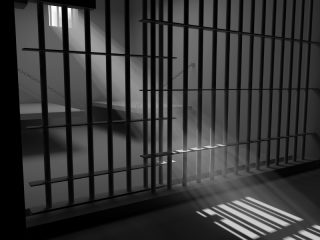Scottish Landlords Making Losses of £3,800 Per Year
Scottish landlords are seeing a decline in their returns, of £3,800 per year, according to the latest Scotland Buy to Let Index by Your Move.
Falling house prices and higher taxes for buy-to-let properties have caused returns to drop for landlords in Scotland. Over the year to May, annual returns decreased by 2.2%.
In absolute terms, the average Scottish landlord has seen a paper loss of £3,782 in the last 12 months.

Scottish Landlords Making Losses of £3,800 Per Year
Your Move reports that the initial Land and Buildings Transaction Tax, introduced in April 2015, and this year’s 3% Stamp Duty surcharge for buy-to-let landlords have held down prices in May.
This has also created a shortage of homes to rent, pushing up costs for private tenants, says the index.
The average rent is Scotland now stands at £549 per month, compared with £538 in the previous month. This is the highest Scottish rent on record, surpassing the previous peak seen in July 2015.
Rents rose in all parts of Scotland in May, with Glasgow & Clyde recording the greatest increase, of 1.9%. This equates to an £11 jump in prices compared to the previous month.
On an annual basis, Edinburgh and the Lothians saw the sharpest rise of any region, at 12%, or £69, to reach £662 per month.
The Lettings Director of Your Move Scotland, Brian Moran, comments: “Rents are rising rapidly as a result of the new Land and Building Transaction Tax surcharge for buy-to-let properties.
“This tax hike has dissuaded landlords from investing in the sector, leading to a shortage of homes to rent, compared to the demand for housing.
“With the limited supply of rental properties, potential tenants have been forced to compete to secure homes, pushing up rents. The introduction of this anti-landlord legislation from Holyrood has ensured the cost of the policy has hit tenants hardest.”
The research also found that the average rent price in Scotland has risen by 7.9%, or £40 per month, since May 2011, when the Scottish National Party (SNP) gained an overall majority in Holyrood.
Moran explains: “Since the SNP came to power five years ago, monthly rents have increased by an average of £40. However, the rent control policy in the Scottish government’s private tenancies bill will only treat the symptoms, not the cause, of rising rents. By limiting the rent that can be charged on a property, becoming a landlord will become less appealing, limiting investment and forcing many to consider leaving the sector. This will lead to an even greater shortage of homes to rent.
“In addition, without the potential incentive of higher rents, landlords will lack the motivation and finance to improve the quality of their properties. The government needs to look at incentivising landlords to increase the supply of rental properties in Scotland. With more homes available to rent, tenants wouldn’t need to compete for properties and rents would be more affordable.”



